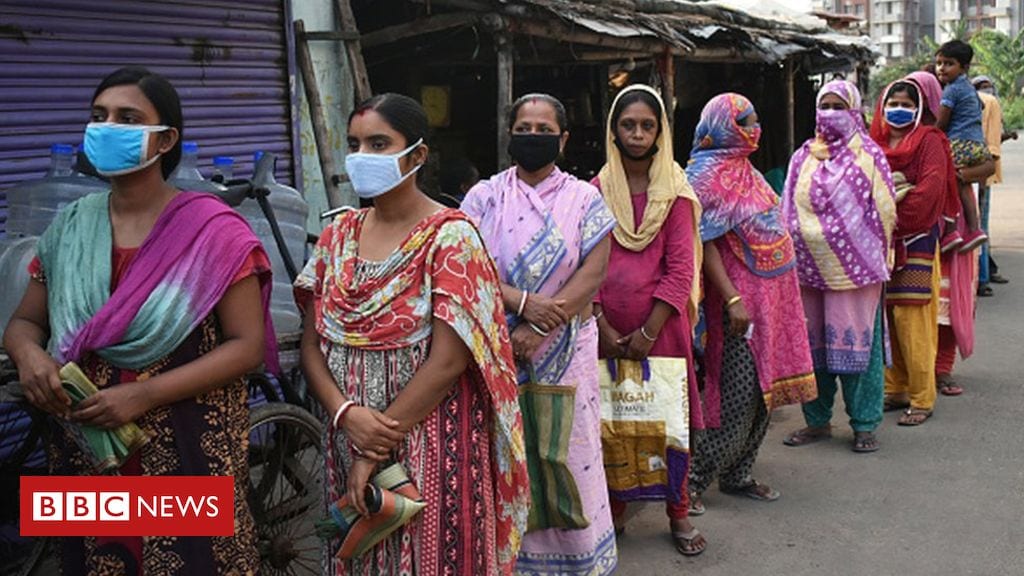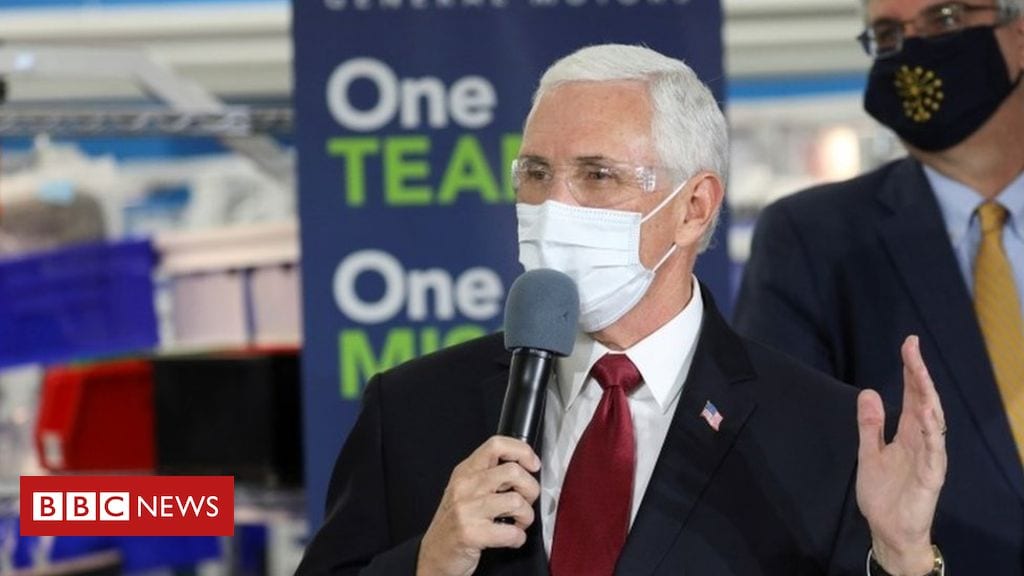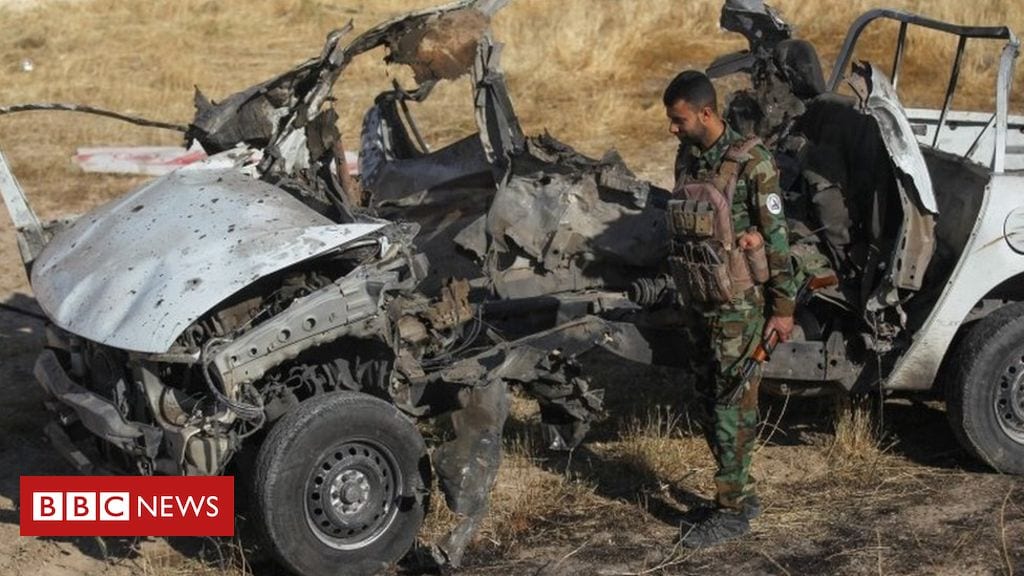[ad_1]
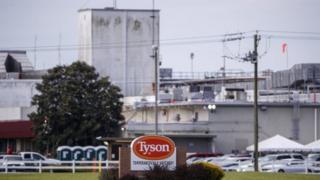
Image copyright
EPA
Closures of meat processing plants quickly affect the food supply chain
US President Donald Trump has ordered meat processing plants to stay open to protect the nation’s food supply amid the coronavirus pandemic.
He invoked a Korean War-era law to mandate that the plants continue to function, amid industry warnings of strain on the supply chain.
An estimated 3,300 US meatpacking workers have been diagnosed with coronavirus and 20 have died.
The UN last month warned the emergency threatened global food supply chains.
Twenty-two US meatpacking plants across the American Midwest have closed during the outbreak.
They include slaughterhouses owned by the nation’s biggest poultry, pork and beef producers, such as Smithfield Foods, Tyson Foods, Cargill and JBS USA.
What does the White House say?
“Such closures threaten the continued functioning of the national meat and poultry supply chain, undermining critical infrastructure during the national emergency,” says Tuesday evening’s executive order, invoking the 1950 Defense Production Act.
“Given the high volume of meat and poultry processed by many facilities, any unnecessary closures can quickly have a large effect on the food supply chain.”
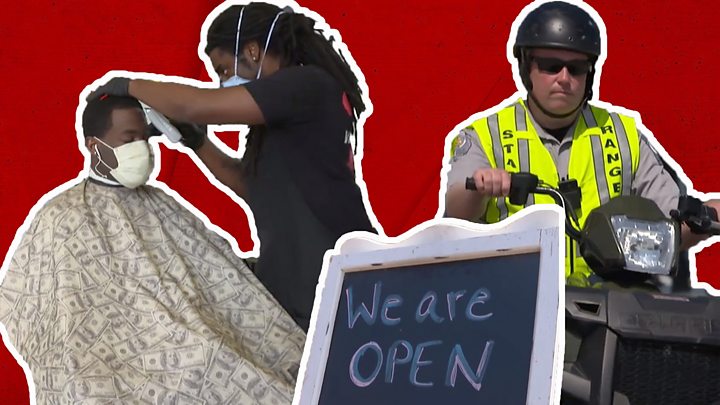
Media playback is unsupported on your device
The order designates the meatpacking plants as part of critical infrastructure in the US.
A White House official told US media it will work with the Department of Labor to issue guidance for vulnerable workers, such as over-65s and those with chronic health conditions, to stay at home.
Like lambs to the slaughter?
Analysis by Jessica Lussenhop, BBC News
The leadership of large meatpacking companies have faced tough questions over whether they did enough to prepare for the pandemic and protect workers.
On top of the fact that production lines necessitate that workers stand very close together, most are low-income, hourly workers.
Many are immigrants living paycheque to paycheque, like the ones at a Sioux Falls, South Dakota, pork plant who told the BBC that despite the risk, they have no choice but to go to work if plants are open.
Without strict adherence to safety guidelines – which are not currently being deemed “mandatory” by OSHA – it’s not hard to picture new outbreaks at factories, or resurgences of the virus in factories that shuttered but reopen prematurely.
All of this could leave these employees trapped in the same impossible choice they were in when the virus first began spreading in factories in late March: risk my health or lose my job.
What does the meat industry say?
John Tyson, chairman of Tyson Foods took out full-page ads on Sunday in the Washington Post and New York Times to warn “the nation’s food supply is breaking”.
“As pork, beef and chicken plants are being forced to close, even for short periods of time, millions of pounds of meat will disappear from the supply chain,” he wrote.
“As a result, there will be limited supply of our products available in grocery stores until we are able to reopen our facilities that are currently closed.”
He said millions of cattle, pigs and chickens will be euthanised because of slaughterhouse closures, limiting supplies at supermarkets.
Pork production has borne the brunt, with daily output slashed by at least a quarter.
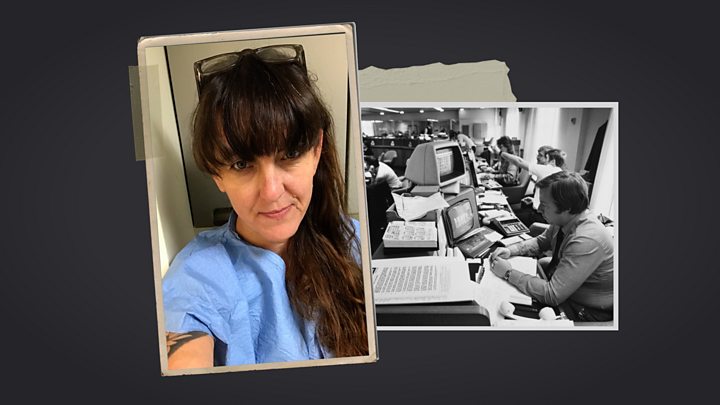
Media playback is unsupported on your device
Tyson – which employs some 100,000 workers nationwide – has suspended operations at its pork plant in Waterloo, Iowa.
Smithfield Foods shut down production at its plant in Sioux Falls, South Dakota, after an outbreak infected hundreds of employees.
What do the unions say?
The United Food and Commercial Workers International Union (UFCW), the largest US meatpacking union, demanded the Trump administration compel meat companies to provide proper protective equipment and ensure daily coronavirus testing for slaughterhouse workers.
“While we share the concern over the food supply, today’s executive order to force meatpacking plants to stay open must put the safety of our country’s meatpacking workers first,” said the union.
The UFCW said the White House order would provide legal cover to companies in case employees catch coronavirus at work.
“We’re working with Tyson,” Mr Trump told reporters in the Oval Office earlier on Tuesday. “We’re going to sign an executive order today, I believe, and that will solve any liability problems.”
Richard Trumka, the president of the AFL-CIO union, said: “Using executive power to force people back on the job without proper protections is wrong and dangerous.”



